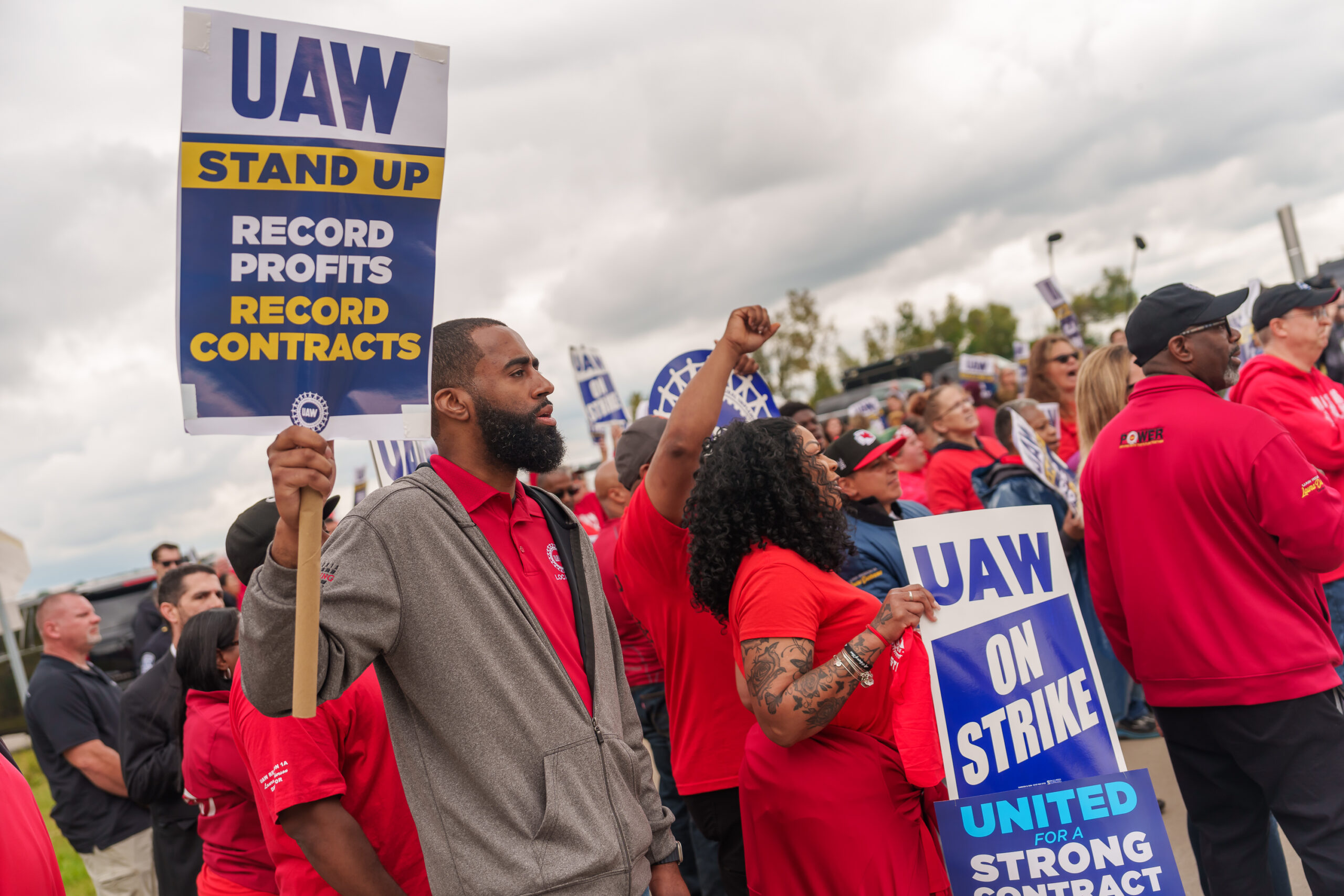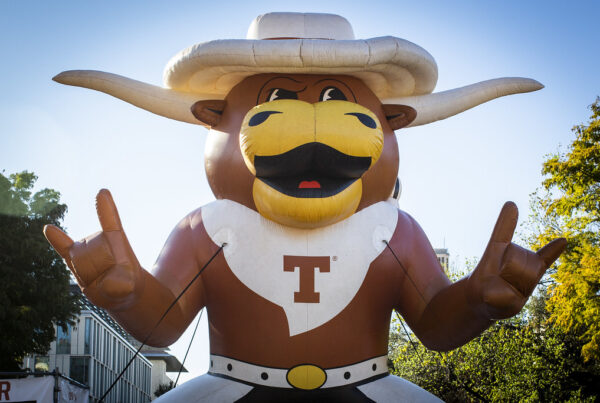Some 5,000 union workers walked off the job Tuesday at the General Motors plant in Arlington. The facility builds trucks and full-size SUVs – some of GM’s most profitable vehicles.
The Arlington strike is the latest in a series of targeted job actions against the “big three” U.S. automakers: GM, Ford and Stellantis. About 45,000 United Auto Workers members are currently on strike.
Micheline Maynard, a journalist who covers the auto industry, joined the Standard to share the latest developments. Listen to the interview above or read the transcript below.
This transcript has been edited lightly for clarity:
Texas Standard: These strikes against individual auto plants began back in mid-September, a few plants at a time. Can you say something about the UAW ‘stand up strike’ strategy? What’s it all about? And is it working for the UAW?
Micheline Maynard: Well, in previous years, the UAW chose what was called a target company where they tried to get the best deal. And then generally, if they didn’t get a deal, they would march everybody at that company out. This is the first time that the UAW has used a strategy of what they call “stand up strikes.” In other words, stand up from your workplace and walk out.
And the plants have been kind of unpredictable and random as far as the companies are concerned. They struck General Motors, Ford and Stellantis, the former Chrysler, on the first day of the strike, one of each. And then over the last six weeks, they’ve been adding groups of plants, and now they’ve added Arlington.
But here we are in day 40 or 41? And I understand that there has been some progress. But how well is the strategy working overall, by your reckoning?
That’s a really good question, and I’ve been thinking a lot about that because I would say that the UAW is being able to pull better offers out of each company from where they were on September 14, but they don’t have a deal. And if you don’t have a deal on offer, it doesn’t really matter.
Mary Barra, who is the CEO of General Motors, actually made some comments about something that Shawn Fain, the UAW president, had described as a big victory. He had said a couple of weeks ago that General Motors was committing that the electric battery plants that [are] going to be built would be under the UAW. But then Mary Barra came out as General Motors announced its earnings and said that’s something that’s got to be negotiated by the electric battery company, which is exactly what Ford has been saying.
And the electric battery issue has been a big sticking point at Ford as well. So I’m not sure if Shawn Fain thought he had more than he had, but she just threw some cold water on it.
» GET MORE NEWS FROM AROUND THE STATE: Sign up for Texas Standard’s weekly newsletters
Well, the UAW went after those profitable truck plants at Ford, also Stellantis – and those are the Ram trucks. The Arlington plant is sort of a big kahuna, and I think a lot of people expected the UAW to call a strike there sooner. What’s the significance of Arlington now being drawn into the strike mix?
So Arlington produces GM’s largest and most profitable sport utility vehicles. So the Cadillac Escalade, the Tahoe, vehicles like that. And so it kind of had it in its back pocket, I think, to use as pressure on General Motors, because this plant is a very important plant.
General Motors invested about a billion and a half dollars in it three or four years ago to modernize it and make sure that it could maximize efficiency there and get the most revenue out of that factory. So I don’t think anybody has to worry that Arlington would go away. But General Motors has put a lot of money, and there are a lot of people working there. And so this is definitely a key plant for it.
How is this strike affecting the two sides? Do you think it’s going to go on considerably longer? What’s your take?
So up here in Michigan, it’s hunting season starting on November 15. And there have been people saying, ‘oh, they want to get it done by hunting season.’ But I’m not buying that.
First of all, a lot of the workers in these factories are much younger than they were in the past. They really can’t afford to take time off to go hunting. They’re already on strike. And strike pay is only $500 a week. So I don’t see November 15 as particularly meaningful.
I would expect something by Thanksgiving or else once it starts snowing up here, people kind of get dug in – no pun intended. It can go along a lot longer than anybody anticipated.















